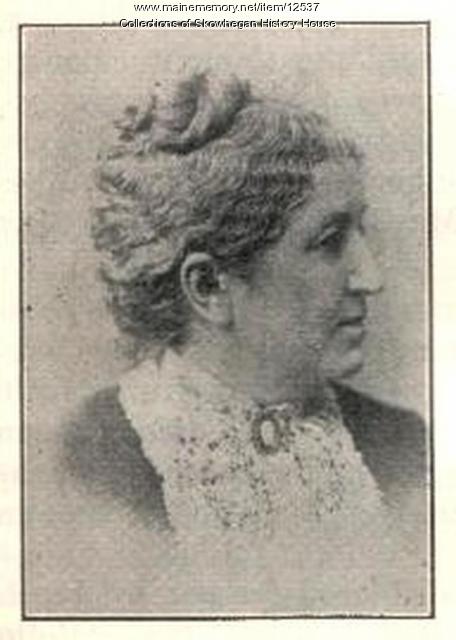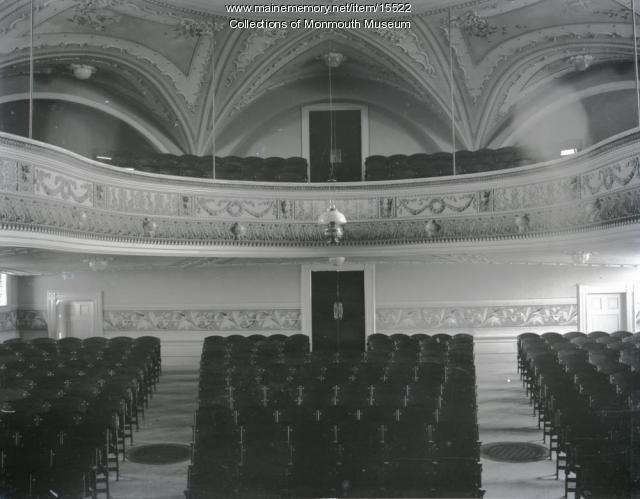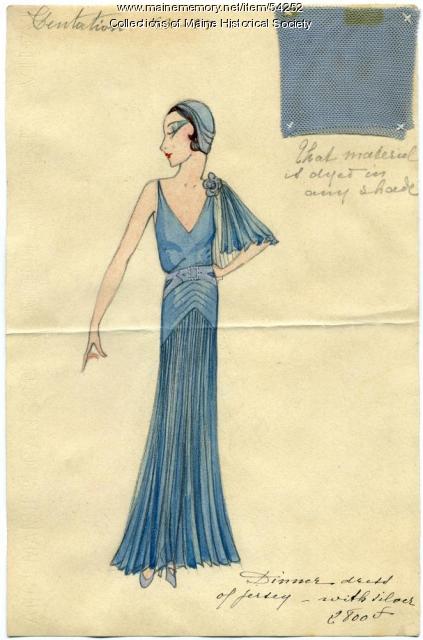Keywords: Women educators
- Historical Items (327)
- Tax Records (0)
- Architecture & Landscape (1)
- Online Exhibits (68)
- Site Pages (194)
- My Maine Stories (25)
- Lesson Plans (1)
Online Exhibits
Your results include these online exhibits. You also can view all of the site's exhibits, view a timeline of selected events in Maine History, and learn how to create your own exhibit. See featured exhibits or create your own exhibit
Exhibit
These stories -- that stretch from 1999 back to 1759 -- take you from an amusement park to the halls of Congress. There are inventors, artists, showmen, a railway agent, a man whose civic endeavors helped shape Portland, a man devoted to the pursuit of peace and one known for his military exploits, Maine's first novelist, a woman who recorded everyday life in detail, and an Indian who survived a British attack.
Exhibit
Holding up the Sky: Wabanaki people, culture, history, and art
Learn about Native diplomacy and obligation by exploring 13,000 years of Wabanaki residence in Maine through 17th century treaties, historic items, and contemporary artworks—from ash baskets to high fashion. Wabanaki voices contextualize present-day relevance and repercussions of 400 years of shared histories between Wabanakis and settlers to their region.
Exhibit
Longfellow: The Man Who Invented America
Henry Wadsworth Longfellow was a man and a poet of New England conscience. He was influenced by his ancestry and his Portland boyhood home and experience.
Exhibit
The mainspring of fashion is the process whereby members of one class imitate the styles of another, who in turn are driven to ever new expedients of fashionable change.
Exhibit
Baseball often is called the National Pastime. For many people, baseball is encountered in the backyard and down the street, a game played by a few or the full contingent of a team.
Exhibit
Elise Fellows White: World Traveling Violin Prodigy
Elise Fellows White was a violinist from Skowhegan who traveled all over the world to share her music.
Exhibit
Student Exhibit: Rebecca Sophie Clarke
Sophie May, whose real name was Rebecca Clarke, was the author of over 40 books between 1861 and 1903. She wrote the "Little Prudy Series" based on the little town of Norridgewock.
Exhibit
World War I and the Maine Experience
With a long history of patriotism and service, Maine experienced the war in a truly distinct way. Its individual experiences tell the story of not only what it means to be an American, but what it means to be from Maine during the war to end all wars.
Exhibit
Rumford's Notable Citizens in the Civil War
A number of Rumford area residents played important roles during the Civil War -- and in the community afterwards. Among these are William King Kimball, who commanded the 12th Maine for much of the war.
Exhibit
Rum, Riot, and Reform - Temperance Membership
"Women, like the the young women pictured in "Daughters of Temperance", wore sashes or collars over their simple silk "everyday" dresses."
Exhibit
Music in Maine - Opera, Orchestras and Stages
"… to the Penobscot people, creating cultural and educational opportunities through her musical talents."
Exhibit
Rebecca Usher: 'To Succor the Suffering Soldiers'
Rebecca Usher of Hollis was 41 and single when she joined the Union nursing service at the U.S. General Hospital at Chester, Pennsylvania. Her time there and later at City Point, Virginia, were defining experiences of her life.
Exhibit
Shaarey Tphiloh, Portland's Orthodox Synagogue
Shaarey Tphiloh was founded in 1904 by immigrants from Eastern Europe. While accommodating to American society, the Orthodox synagogue also has retained many of its traditions.
Exhibit
Rum, Riot, and Reform - Quenching the Thirst
"… Map Library and Smith Center for Cartographic Education National Soldier Home: Birds Eye View of Togus Beck and Pauli, Lithographers, 1878…"
Exhibit
Northern Threads: Outerwear, Militia & Cadet uniforms
A themed vignette within "Northern Threads Part I," featuring 19th century outerwear, bonnets, militia and cadet uniforms.
Exhibit
Music in Maine - Community Music
"Leeds Grange Hall stage, 1975Leeds Historical Society The Grange movement came to Maine in 1873, welcoming everyone to join. They offered women…"
Exhibit
The Schooner Bowdoin: Ninety Years of Seagoing History
After traveling to the Arctic with Robert E. Peary, Donald B. MacMillan (1874-1970), an explorer, researcher, and lecturer, helped design his own vessel for Arctic exploration, the schooner <em>Bowdoin,</em> which he named after his alma mater. The schooner remains on the seas.
Exhibit
Rum, Riot, and Reform - The Continuing Debate
"Armed with the education they gained from the temperance movements, they have made that decision for themselves."
Exhibit
Maine is home to dozens of summer-long youth camps and untold numbers of day camps that take advantage of water, woods, and fresh air. While the children, counselors, and other staff come to Maine in the summer, the camps live on throughout the year and throughout the lives of many of the campers.
Exhibit
Fallen Heroes: Those Who Gave Their Lives: World War II
At least twenty-three Jewish men from Maine died in the military during World War II. Photographs and other memorabilia are available for fewer than half of them. Read more about them.
Exhibit
Throughout the history of the state, residents have protested, on paper or in the streets, to increase rights for various groups, to effect social change, to prevent social change, or to let their feelings be known about important issues.
Exhibit
Civil Defense: Fear and Safety
In the 1950s and the 1960s, Maine's Civil Defense effort focused on preparedness for hurricanes, floods and other natural disasters and a more global concern, nuclear war. Civil Defense materials urged awareness, along with measures like storing food and other staple items and preparing underground or other shelters.
Exhibit
Mainers, like residents of other states, had differing views about slavery and abolition in the early to mid decades of the 19th century. Religion and economic factors were among the considerations in determining people's leanings.
Exhibit
Cosmopolitan stylings of Mildred and Madeleine Burrage
Born in Portland, sisters Mildred Giddings Burrage (1890-1983) and Madeleine Burrage (1891-1976) were renowned artists and world travelers. Mildred's experiences studying painting in Paris and Italy, and the sisters' trips to Mexico and Guatemala inspired their artwork and shared passions for cosmopolitan and stylish attire. Housed at Maine Historical Society, The Burrage Papers include selections of original advertising drawings called "line sheets" from Parisian fashion houses dating from 1928 to 1936. Images of Madeleine's gemstone jewelry and Mildred's artwork accompany intimate family photographs of the sisters.
























